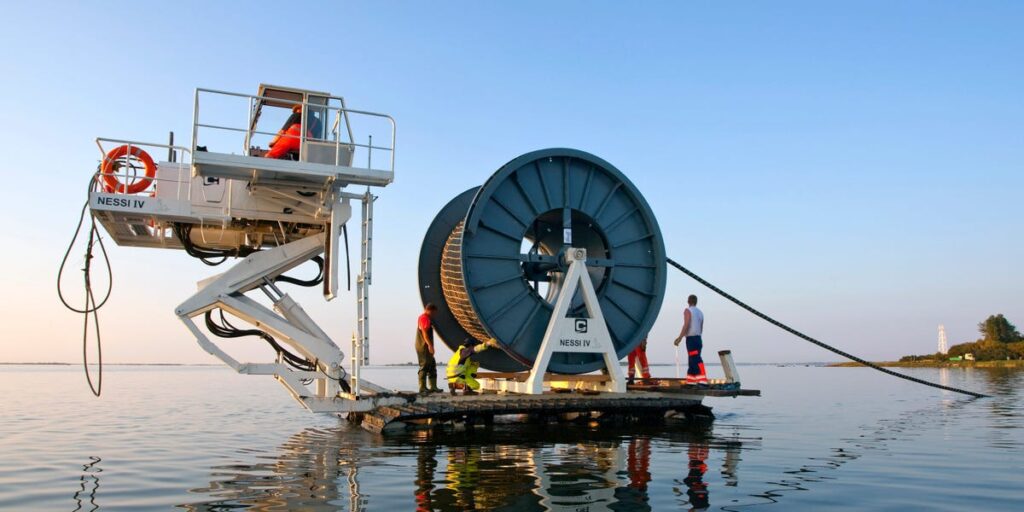- Meta plans a $10 billion global underwater cable project spanning 25,000 miles, TechCrunch reported.
- The project is reportedly in the early planning stages, though the exact route has not been announced.
- Meta aims for sole cable ownership of the cable, avoiding geopolitical tension areas like the Red Sea.
Meta is reportedly planning to build a fiber-optic underwater cable that would traverse the globe, TechCrunch reported.
Sources close to Meta, which owns Facebook, Instagram, and WhatsApp, said the company may spend over $10 billion on a nearly 25,000-mile project. Meta would reportedly own 100% of the cable’s capacity, per TechCrunch. It’s unclear what role, if any, AI plays in the project’s motivations.
TechCrunch reported the project is in its early stages, but the intended capacity and route are not public. Planning is reportedly being led by Meta’s South Africa office.
Underwater fiber-optic cables are frequently used to carry telecommunication signals over large areas of water. Meta is part owner of various cables including 2Africa, a submarine telecommunications cable extending across Africa’s coastline.
Google is the sole owner of 17 submarine cable holdings, while Amazon and Microsoft are part owners in a handful, telecom analyst Teleography found.
Entrepreneur Sunil Tagare first reported the plan, telling TechCrunch that the cable would cost $2 billion but would jump to over $10 billion in the next five to 10 years. Tagare told TechCrunch that he speculates India’s capacity to build data centers more cheaply than the US could explain why the cable may end in India.
“It will start on the East Coast of the US and go straight to India with a stop in South Africa (for powering and restoration purposes),” Tagare wrote on LinkedIn. “And it will also go from India straight to the Western Coast of the US with a powering and restoration stop in Darwin, Australia — avoiding the Red Sea, the South China Sea and more importantly Egypt, Marseilles, the Straits of Malacca and Singapore — all of whom are now major single points of failure.”
The project would take years to complete, given limited resources like cable ships, TechCrunch reported.
TechCrunch reported that the cables could also be strategically placed to avoid areas of geopolitical tension where cables have been damaged, such as the Baltic or Red Seas.
Meta did not respond to a request for comment.

